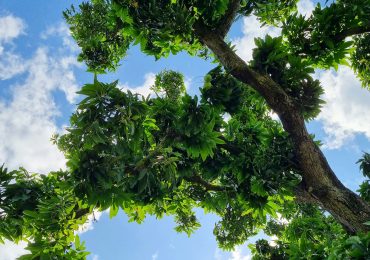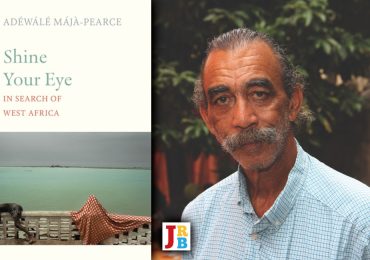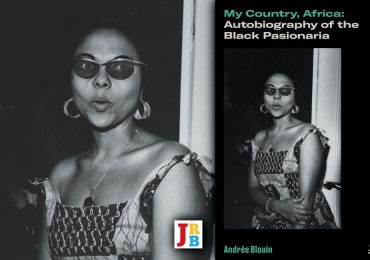Toyin Falola, who originally trained as a historian, is simply unparalleled as a vessel of public discourse, collaborative work, and myriad forms of African intellectual agency. Indeed, collaboration is a central facet of Falola’s work, which has seen him publish almost two hundred single authored, co-authored, edited or co-edited volumes in the last forty years. Such astonishing productivity has led to him being honoured with well over a dozen honorary doctorates in different parts of the world, in addition to receiving a plethora of national awards, together with traditional chieftaincy titles, in Nigeria. Some of his most recent honours include Member of the Order of the Niger and Agba-akin of Kusela-Ibadan.
It is tempting to suggest that Falola’s versatility somewhat resembles Thoth’s, the ancient Egyptian god of writing and wisdom and the creator of hieroglyphics. Thoth, who was said to have authored over one thousand volumes in diverse areas of intellection, was subsequently appropriated by both the Greeks and Romans, and named as one of their own gods. In Greece, he was called Hermes, son of Zeus, the foremost messenger of the gods and the deity of oratory in his own right.
One of Falola’s most telling and endearing traits, in spite of his vast knowledge, is a capacity and willingness to learn. In our conversations, he has an almost eerie ability to do far more listening than talking. As such, conversations with him are not occasions for ego boosting and pedantry. Instead, they are opportunities to foster camaraderie, discreet doses of repartee and mutual edification.
In his many book series, for publishing houses such as Rochester University Press, Palgrave-Macmillan, Cambridge University Press, Rowman and Littlefield, Bloomsbury Academic, Routledge and others, Falola constantly strives to connect African peoples across multiple diasporas. Such interactions are marked by intense conviviality, reciprocity, dialogue and critical analysis. Fellowships, communion and networking come in the form of meetings both formal and informal—including conferences and symposia.
In 2020, taking a step further in aid of bridging the divide between the academy and the public sphere through dialogue, Falola launched the Toyin Falola Interviews, a series of discussions aiming to ‘amplify the voices of Africa and the African Diaspora’. Centring African voices and perspectives within global civil society, the Interviews collapse the colonialist metropolitan/periphery framework. Arguably, no other contemporary African scholar has done as much to invalidate the hegemony of this opprobrious dichotomy through the creation of different platforms and collaborative projects.
It is also important to note that perhaps even more than Wole Soyinka, who is also extraordinarily versatile, Falola’s transdisciplinary and transcontinental writings may be said to be as expansive as the waters of Yemọja, the Yoruba goddess of the rivers and the sea. Ṣàngó, the deity of thunder and lightning, reputed to be the fourth king of the old Oyo Empire, is Falola’s guardian spirit, just as Ògún, the god of war and iron, presides over Soyinka. But where Ṣàngó was fierce and temperamental, an incorrigible warlord, Falola is invariably well mannered and even tempered, and is rarely ever, if at all, given to agitated outbursts, which is why the comparison to Yemọja’s pacific expansiveness seems appropriate.
Furthermore, Falola’s intellectual productions do not appear like staccato bursts of thunder à la Ṣàngó, but rather seem to undulate like calm and steady ocean waves in search of unknown cosmic fulfilment. These particular conceptual origins necessarily speak to the poetics of identity as well as the pragmatics of decolonisation, in the context of thought still grappling with the after-effects and dilemmas of the colonial encounter.
Falola, who has served for over thirty years as professor of African history at the University of Texas, Austin, in the United States, was born in the south-west Nigerian city of Ibadan in January 1953. Ibadan rose, in the early nineteenth century, out of the ashes of devastating wars brought on by the expansionist, jihadist Fulani drive from the north and the violent internecine conflicts that ravaged Yorubaland during the transatlantic slave trade and British colonial invasion. Initially renowned for producing legendary generals, Ibadan quickly transformed into a hub of culture and civility that eventually culminated in the establishment of Nigeria’s first university, in 1948. Falola exemplifies this phase of the city, which is also renowned as a repository of the finest gems of the Yoruba language, in terms of proverbs and philosophical aphorisms.
To a modern eye and sensibility, a typical, ostensibly rural, Yoruba homestead or hamlet may look rudimentary and perhaps even undeveloped. Ibadan, in particular, seems like an unwieldy amalgam of rust, rusticity and uneven development, thickly sprayed with irredeemable red earth. But it would be an awful mistake to adopt this superficial view. Traditional Yoruba communities are carefully constructed microcosms, intricately woven together, of hierarchy, language, custom and tradition. Each being within this elaborate social structure is held in place through a web of social relations that affirm the importance of a communal ethos rather than the liberties of the individual. Unfortunately, modernity has begun to subvert and destroy these sociocultural foundations, but they remain the communal values that drive a large part of Falola’s work.
However, Falola’s or even Ibadan’s apparent communalism needs to be qualified. As Falola describes it in his memoir, A Mouth Sweeter than Salt (2005), when Ibadan was about to take off as a postwar settlement, its people released two hundred snails in different directions to signify the imminent global pathways and cultural tentacles of the famed city. Appropriately, Falola is himself widely travelled, with contacts and networks across the globe. Indeed most recently much of his research has been an engagement with, and an exploration of, the global and cosmopolitan antecedents of the Yoruba, beginning with the fifteenth century apogee of the Oyo Kingdom down to the mass dispersal caused by the transatlantic slave trade, which saw the roots and seeds of Yoruba culture planted in Brazil, Barbados, Cuba, Trinidad and Tobago, Colombia and other parts of South America. A significant part of his work also traces these global trails through discursive reconstructions and contemporary cultural linkages.
Africa, its teeming peoples, geographies, cultures and histories, is an engaging cauldron of alterity. We are separated by the most astonishing diversity of indigenous languages—not to mention the divisions effected by the Francophone, Anglophone, Arabophone and Lusophone spheres. As often noted, it is often easier for postcolonial Africans to communicate with their erstwhile colonial masters than among themselves. Even the Economic Community of West African States (ECOWAS), the regional economic bloc of the West African region, is divided according to the all-too-familiar Anglophone-Francophone colonial formula, which creates daunting cultural, linguistic and existential stumbling blocks among its nations.
Colonialism wasn’t merely a tussle between coloniser and colonised. It also became, unfortunately, a life and death contest among precolonial nationalities and ethnicities. Colonialism created new divisions, articulations of difference and internecine hatreds. These antinomies exist to this day, manifested as ethnic chauvinism, nationalist bigotry, religious intolerance and xenophobic biases. Digital and social media-driven forums like the Toyin Falola Interviews are necessary, therefore, in order to navigate our differences, fears and mutual suspicion. These platforms seek a dispassionate confrontation with the colonial legacy, with the apprehension of the internal African ‘other’, which is indeed a manifestation of anti-black racism, bigotry and intolerance. We have internalised our age-long colonial oppression as a hatred of both the self and African other.
So far, the Toyin Falola Interviews has hosted national leaders, world renowned academics, prominent social activists and groundbreaking artists. Recent guests on the programme include the late Alaafin of Oyo, Oba Lamidi Adeyemi; Richard Joseph, emeritus professor at Northwestern University in the United States; Attahiru Jega, academic, politician and former chairman of the Independent National Electoral Commission of Nigeria; former president of South Africa Thabo Mbeki; and pioneer of African and African American studies and Afrocentric theory, among other pursuits, Molefi Kete Asante.
In these sometimes heated public exchanges, facilitated by online video and social media platforms, Africans from all corners of the world are able to engage across particularist and universalist lines, venting their qualms and frustrations and proposing ways to make their lives better. They are also empowered to articulate their ideological positions clearly. Beyond this, there is also a powerful pan-Africanist element at play, repurposed for the age of hyper-digitalisation, Afrofuturism and trans-humanism. Pan-Africanism here is not merely a relic from the colonial era but, through a deliberate engagement with the zeitgeist, acquires new life and a fresh surge of relevance. Even more, it is a strategic means by which peoples of African descent can engage with the intellectual conundrums of their history and the present.
This Pan-Africanism, somewhat refashioned, provides the psychological bulwark and ideological support many Africans feel are sorely lacking in their lives. It seems possible to entertain hope and optimism via wholesome dialogue, collective reflection and constructive critique even when circumstances turn unremittingly bleak.
Another lesson being offered by the series is that it is possible to enter into dialogue and build enduring bridges over colonially inherited schisms—and in fact, that such reconstructions are necessary to ensure varied forms of societal continuity. This is largely a bottom-up and independent approach, which makes it all the more promising and interesting.
In January this year, the Toyin Falola Interviews hosted Omoba Yemisi Shyllon, one of Nigeria’s most well known art collectors, whose presentation illustrated the difficulties of maintaining his hobby in a postcolonial context. Art collecting in large parts of Africa is saddled with colonialist apprehensions and prejudices, and is often viewed with suspicion by those beholden to both the Islamic and Christian faiths, which discourage the worldly adoration of ‘graven images’. These entrenched religious beliefs have done much to hamper the creative spirit in significant parts of the continent. Shyllon, who is an engineer, lawyer, stockbroker, art merchant, and management consultant, maintains a precarious balance between tradition and modern life, in which he struggles to privilege the former in face of considerable public disquiet. He recently established the Yemisi Shyllon Museum of Art, the first purpose-built, privately-owned art museum in Nigeria.
In conversations such as the one with Shyllon, some of the conceptual tensions in Falola’s work become evident: the unending tussles between historical memory and collective amnesia, communalist worldviews and strident individualism, quaint folk epistemologies and solitary genius. Falola has been able to maintain an equilibrium between these seemingly irreconcilable ideas. As he turns seventy, it is important we acknowledge this, as well as his ability to nurture innumerable relationships between diverse nations and regions, a humanising social existence in an ultra-digital age.
- Sanya Osha is the author of several books including Postethnophilosophy (2011) and Dust, Spittle and Wind (2011), An Underground Colony of Summer Bees (2012) and Ken Saro-Wiwa’s Shadow (Expanded Edition) (2021), among other publications. He works at the Institute for Humanities in Africa (HUMA), University of Cape Town.






superb